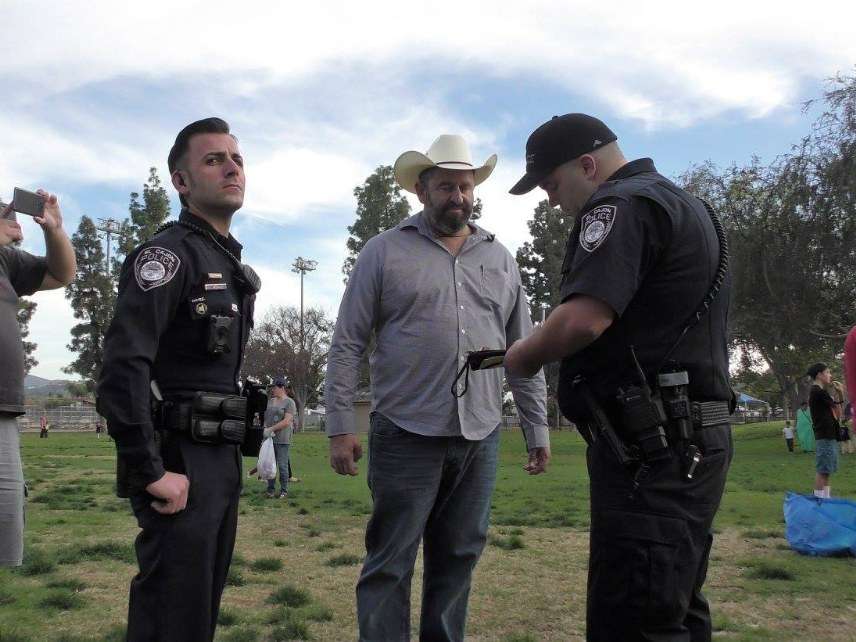Good Samaritans in Southern California Cited for Feeding the Homeless
El Cajon is just the latest city to abuse "public safety" fears to control how people help each other.

Police in the City of El Cajon (near San Diego) spent part of the Martin Luther King holiday weekend citing people for feeding the homeless. Now those people are fighting back.
On Sunday, police cited about a dozen people—including one 14-year-old girl—with misdemeanor charges for feeding homeless people in a public park.
El Cajon passed this law as an "emergency" in October, claiming it was needed due to a rise in Hepatitis A in Southern California last year, an outbreak that has hit the homeless especially hard. Hepatitis A can be spread quite a few ways among those who live unsanitary lives (as the homeless typically do), but it seems unlikely that it's a result of non-homeless people giving homeless people food.
El Cajon's City Council is abusing a health scare to make it harder for the public to provide assistance to homeless people because they want them off the streets and into managed shelters and churches. This "solution" then criminalizes voluntary charitable interactions between citizens for not fitting into the model of how the city wants people to behave.
High school teacher Matthew Schneck shared his citation on Twitter:
Today I got arrested for feeding the homeless in Wells Park in El Cajon. The City of El Cajon has made it illegal to share food with homeless people. https://t.co/6BZzjSxKnL
"…One has a moral responsibility to disobey unjust laws" —Martin Luther King Jr. pic.twitter.com/YTqCxOIRWb
— Matthew Schneck (@matthew_schneck) January 15, 2018
Listen to El Cajon City Council member Bob McClellan complain about people finding their own ways of helping the homeless and not complying with the city's master plan (via the San Diego Union Tribune):
Councilman Bob McClellan said the city has published a list of churches where people can get food and where activists can help serve food, in an effort to contain food sharing to closed and sanitary environments.
"They don't have to feed them in the park where it could cause a problem according to the health authorities," McClellan said. "If they want to help the homeless, look at the list of places. All they have to do is read the list."
The group responsible for the event on Sunday knew full well what was going to happen. The group—named Break the Ban—is defying the ordinance on purpose. They and their lawyers are now going to use the citations to challenge the constitutionality of the law itself. This was their fourth event feeding the homeless in defiance of the law. They're planning another event for January 27.
The American Civil Liberties Union (ACLU) describes the ban as "unconstitutional and unnecessarily cruel." They're claiming the sharing ban violates freedom of speech. It may seem strange to say that giving food is a form of speech, but the ACLU argues that the city is picking and choosing who can express charitable attitudes toward the homeless and the circumstances of how they may do so:
"By prohibiting food sharing only when done for 'charitable purposes,' El Cajon is regulating food sharing because of its expressive content, punishing only those who share food to express their religious or political beliefs in ministry or charity but not those who share food for other purposes," said David Loy, ACLU SDIC's legal director. "If charitable appeals for funds are within the protection of the First Amendment, the same is true for charitable giving, whether of money or food."
El Cajon is hardly alone here. Atlanta has targeted good Samaritans for feeding the homeless in public spaces, as have such cities as Orlando, Tampa, Houston, and Philadelphia, among others. Watch ReasonTV's video from 2012 about Philadelphia's attempt to stop people from feeding the homeless:


Show Comments (12)